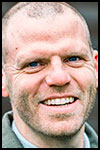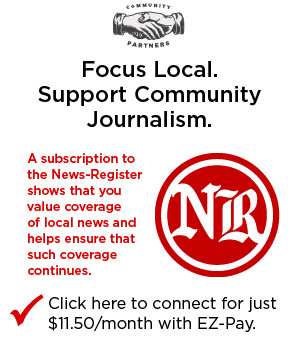Kulla: Shared values may be key to bridging our differences
“Nobody gets left behind.”
It’s an easy statement to make and an important aspiration to support. But what does it look like?
In Oregon, we’re divided one from another. We’re separated by education, income, color, mother country, geography and culture.
The wide, straightforward path is to declare we are all Oregonians. At least we have that in common, right?
But we truly have differences, despite our shared values as Oregonians. And we need to address them.
Do we get to choose to emphasize our collective values or lean back into our differences? I believe to build a better state, we need to do both. We need to acknowledge we have commonalities as well as differences, and build a community based on that tension.
But how? Don’t some of the differences stem from injustice, inequity and bigotry? Don’t some originate from years of unequal investment in basic community needs like schools and infrastructure?
Yes. But first, what values do Oregonians share?
The 2013 Oregon Values and Beliefs Project, which surveyed 7,794 Oregonians, concluded a majority across the state embrace quality K-12 education that is broadly accessible, wellness and personal responsibility in healthcare, environmental quality and protection, protection of natural resources for future generations and road and transportation infrastructure. It concluded they agree incarceration policies need reform, government is too wasteful and inefficient, climate change must be addressed, children are important and, while taxes are necessary, we are burdened with an unfair crying for reform.
According to the survey, Oregonians find it a worthy goal to seek common ground with fellow Oregonians, but are doubtful it will ever occur. You can find the entire report at http://oregonvaluesproject.org/findings/top-findings.
I, too, find it a worthy goal to seek common ground. And I, too, share skepticism about it happening. Frankly, I suspect some people profit from the divisions.
However, I think we can learn from a recent piece of groundbreaking experimental research in Northern Iraq, investigating the idea that social contact is the key to building cohesion among groups mired in conflict.
Researcher Salma Mousa placed Iraqi Christians on amateur soccer teams, some of which included Iraqi Muslims and others not, to test whether social contact would result in social cohesion. In this case, the shared value was simply soccer.
Mousa notes that social cohesion, as evidenced by improved behaviors and attitudes toward members of other groups, is essential in blunting the effects of “prejudicial rhetoric of political entrepreneurs” and the resulting ethnic violence. Social contact, in fact, has been called “a potential vaccine for conflict.”
One important finding: Integrating teams leads to improved behavior towards individual members of other groups, but does not change attitudes toward other groups as a whole. One key conclusion: Reducing prejudicial behavior toward others is perhaps a more realistic goal than changing prejudicial attitudes.
So, what is our “soccer” in Oregon?
In the past year, I have gathered people to discuss climate change and cannabis conflicts. But maybe I was focused too much on the places of conflict and not enough on the areas of agreement. Perhaps we should bring the powerless and powerful, immigrant and pioneer, rural and urban to play soccer together — or engage in some other shared value on terms of cooperation and equal status?
One of the pivotal design details of the Iraqi experiment was placing a small number of the powerful Muslim in-group on a team dominated by members of the powerless Christian out-group. Would we thus find urban residents more willing to “share” resources with rural residents? Would we find multi-generational Oregonians more willing to accept newly arriving immigrants?
What if we assembled disparate people to clear trash from public lands, or brought English-speakers together with non-English speakers to direct some portion of education funding? How about a tour of ailing rural bridges to effect change in urban attitudes about transportation infrastructure?
While many of our Oregon divisions are based upon uneven distribution of resources — and not just monetarily — the most formidable barriers are often cultural. I’m wondering if building safe, uncomfortable interactions around shared values could begin melting those barriers. I’m wondering if they could change social behaviors, or at least foster continuing interaction, among different groups.
The barriers dividing groups of Oregonians are genuine. They should not be discounted.
But the depth of our shared values can foster the weaving of a stronger state — a state in which we can recognize and celebrate our differences, but unite nonetheless because we are stronger together.
I have been repeating this mantra all through the pandemic: “Together, we will see this through.”
Nobody gets left behind if we maintain a “together” focus. And it doesn’t require us to ignore our differences, pretending we’re all the same.
The question then becomes: What’s your soccer?













Comments
Don Dix
Casey -- Clearing trash from public lands is a good start. How about also removing the dead fall and underbrush from the forest floors (those are the ingredients that provide a wildfire with the strength and heat to advance and expand quickly). If one has actually spent some time in our forests, it's easy to recognize what needs to be done. In fact, Native Americans set fires to prevent any build-up on the forest floor and increase hunting opportunities.
The indigenous were and still are the 'real environmentalists', and they knew how to care for their land. Today's 'new environmentalists' are not interested in care, only ominous restrictions and regulations that prevent any clean-up.
The choice simply comes down to employing common sense rather than the constant environmental drama, and put unemployed Oregonians to work making a real difference.
Hibb
"Nobody gets left behind..."
Unless you're people of color, religious, indigent, etc...
Kulla's position is idyllic, not realistic. It fails to recognize that we live in a day and age where one trusts nothing and no one and falls short by not taking into consideration that our differences are reinforced by a biased media that seems to dictate norms that are as unrealistic as Kulla's thought process.
We no longer (if ever) can encourage everyone to sing Kum-Bi-Yah and hope everything works its way to our good....
sbagwell
And your alternative solution is? What alternative vision have you fashioned for our consideration?
At least he's trying to bring people together, and has given it some serious thought. That's more than I can say for all the naysayers, who seem content to simply throw up their hands.
And blaming the "biased media" is one of the biggest copouts known to man. The "media" are all over the place in their views. They aren't even remotely monolithic. That's a load of hogwash.
Hibb
sbagwell: Thank you for asking...
The central theme that is being neglected is that of the family. We live in a postmodernist age that is intoxicated on relativism, denies moral absolutism and emphasizes the dysfunctional family almost as much as it champions the objectifying of women and the downtrodden economic nature of our neighbors to the south.
[1] Inner-city youth are often more subjected to father abandonment related issues than in other cultural subsets...
[2] Crime is rampant, especially in our poorer neighborhoods where a sort of tribalism expressed in a gang mentality warfare mindset often leaves a higher percentage of black men incarcerated than their ethnic counterparts...
[3] Planned Parenthood purposely erected its clinics near or in inner-city neighborhoods, thus enabling their campaign to force population controls over those that it and its founder Sanger deemed undesirables...
The family is the basic unit of civilization and the further removed from it... we allow ourselves to become what we were not intended to be in the first place - a fractured society. The only way to counter this cultural malaise is to once again invest in the family structure through our social, economic, and even spiritual programs, plans, and pursuits. As long as we continue to neglect our family structures, then we are prone to experience an even greater backlash than what we have as of yet had the misfortune to be witnesses to. Only when the family unit is reestablished and secure will we have any chance of recovering our shared cultural beliefs and practices.
If we want to reinvest in the next generation, then we need to invest in the family now or in the end what will there be worth contending for?